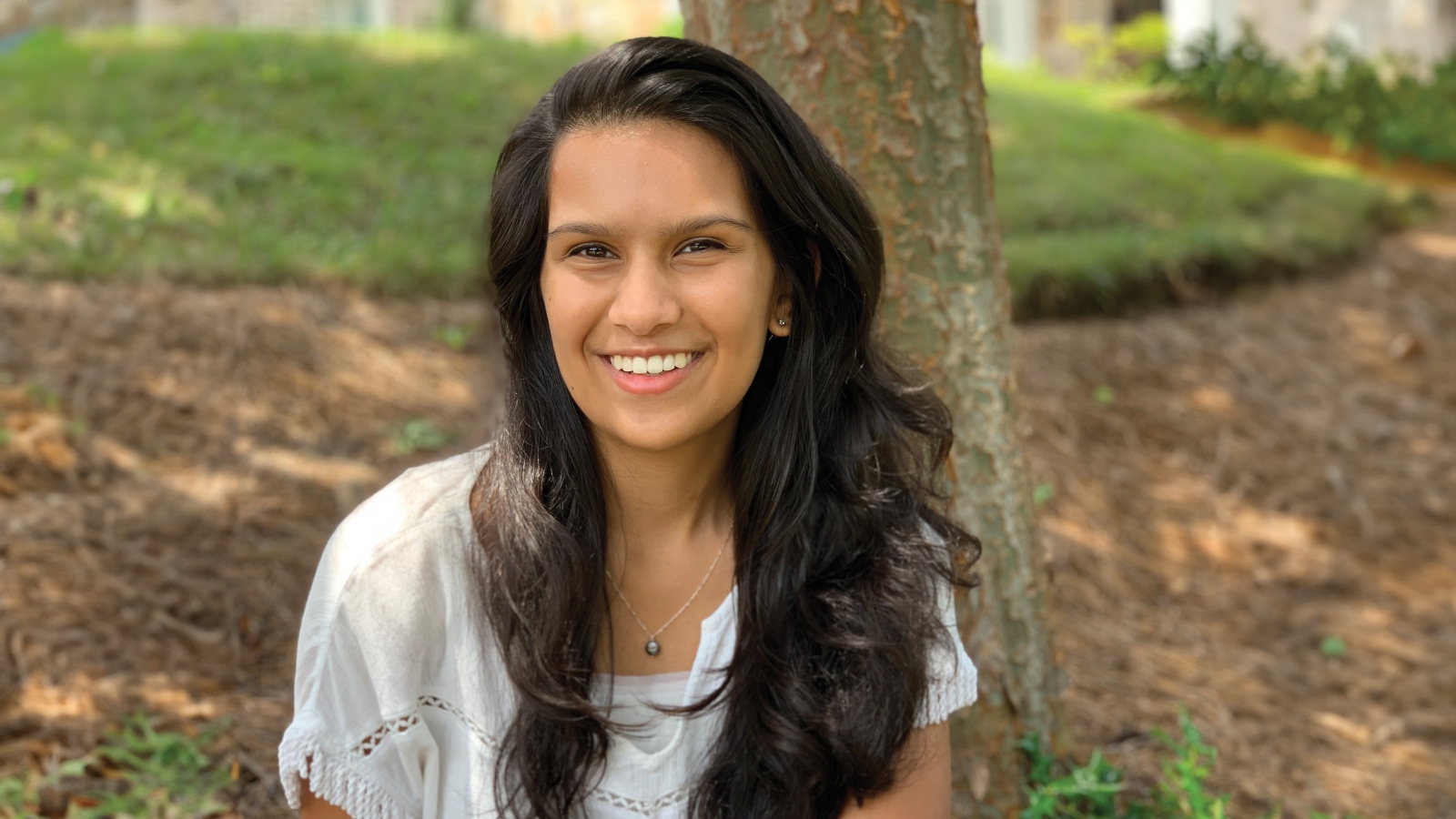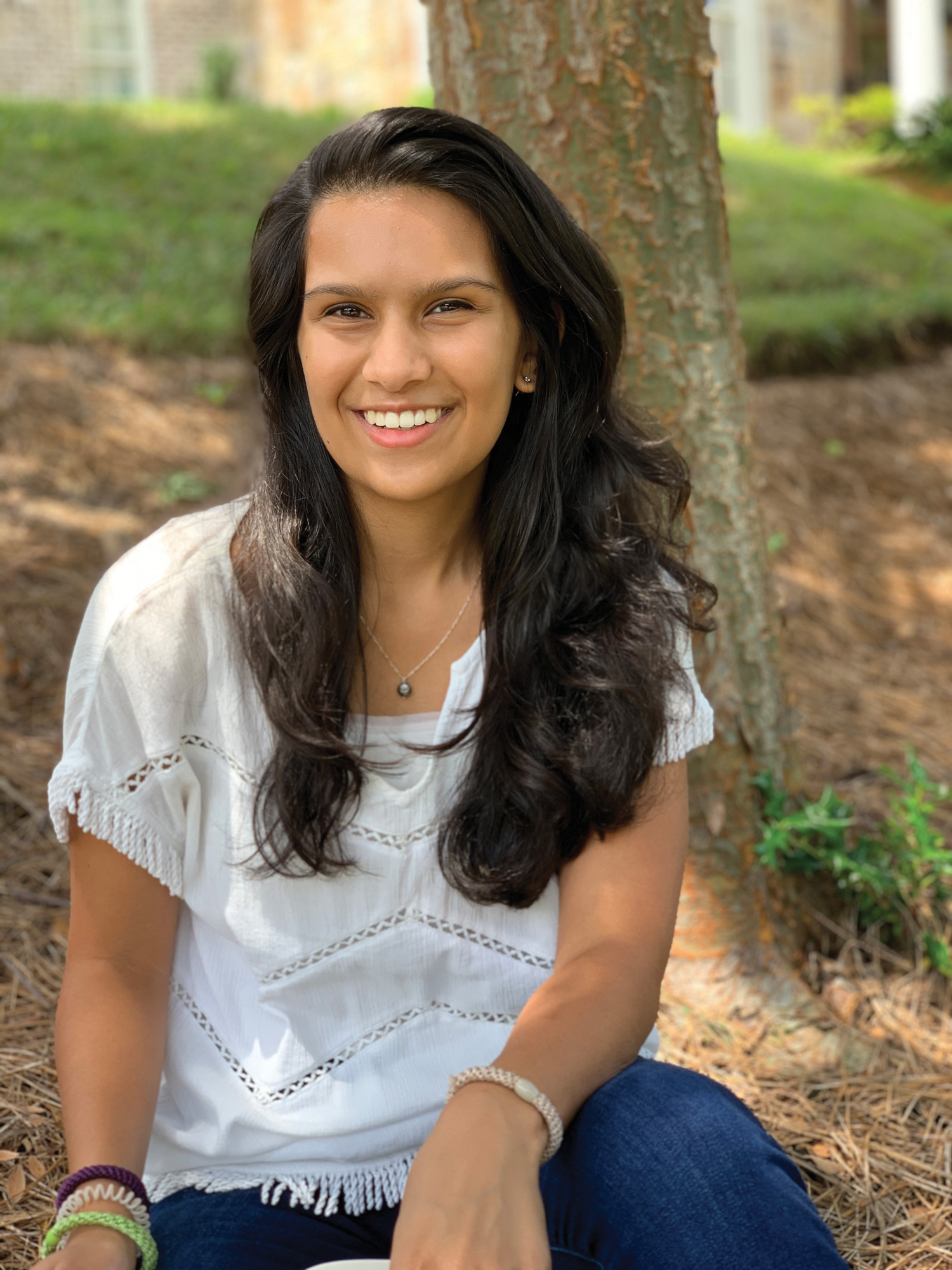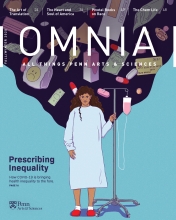This Is Your Brain On Religion
Saachi Datta, C’21, is combining her passion for religion and science on her path to becoming a physician.

“Science and religion are just trying to explain the world,” Saachi Datta says. “People need different devices to live, grapple with bigger questions, and try to explain the phenomena of existence.”
Datta, C’21, wants to be a physician. Her religious studies and biology majors prepare her for that, while also deepening lifelong passions. Recently, she co-authored a peer-reviewed article that combined her interests and found that in patients with neurodegenerative diseases, positive religious coping behaviors correlate with better health outcomes than those experienced by patients with coping behaviors negatively influenced by religion (e.g. holding a punitive view of religion) and those with nonreligious coping behaviors.
“Majoring in religious studies was never even a question, but then I’ve also always been fascinated with science and the human body,” Datta explains. “I think it’s the most intricate machine out there. Every single class I’ve taken has expanded my knowledge and made me even more interested.”
Her first religious studies course was Science and Religion, taught by Donovan Schaefer, Assistant Professor of Religious Studies. “We looked at all the ancient religions in the past and how religion and science were just different applications of the mind,” she remembers. “They weren’t a dichotomy at all.”
Datta researched alongside Andrew Newberg, M’92, a physician and the pioneer of the field of neurotheology, the science of the brain and mind in conjunction with religion and spirituality. Their article, “The Relationship Between the Brain and Spirituality with Respect to Aging and Neurodegenerative Diseases: Clinical and Research Implications,” appeared in the Journal of Religion, Spirituality & Aging.
Explaining the study, Datta says, “We reviewed over 50 studies and concluded that the progression of diseases like Alzheimer’s and Parkinson’s could be slowed down by having a strong spiritual or religious practice. Something interesting and unexpected was that some studies indicate that when religious coping mechanisms are focused on a god that is punishing versus one that is supporting, it creates reports of a negative quality of life or increased depression.”
As the American population ages, simple interventions in the progression of neurodegenerative diseases are potentially powerful. And in the midst of a global pandemic, Datta believes attention to the human mind and how coping mechanisms can improve quality of life is more important than ever.




